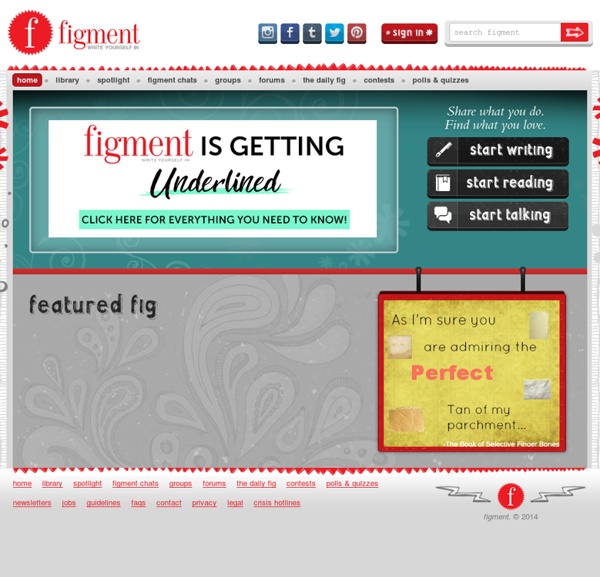



OWL Coming Soon: A new look for our same great content! We're working hard this summer on a redesign of the Purdue OWL. Worry not! Our navigation menu and content will remain largely the same. Printing Press The interactive Printing Press is designed to assist students in creating newspapers, brochures, and flyers. Teachers and students can choose from several templates to publish class newspapers, informational brochures, and flyers announcing class events. Text added to the templates can be modified using a simple WYSIWYG editor, which allows students to choose text features, such as font size and color. Documentation for the Printing Press includes instructions for using the tool. Customized versions of the tool, which include additional instructions and more focused choices, are included with some lessons.
Outils X-Ray Goggles allow you to see the building blocks that make up websites on the internet. Activate the goggles to inspect the code behind any webpage, then remix elements with a single click, swapping in your own text, images and more. You can build: a custom homepage for the New York Times an alternate version of a controversial webpage a funny remix of your best friend's favorite site and more!
Online Proofreader: Pre-grade your paper Paste the text of your paper below (or upload a file) and select the "Get Report" button to immediately receive your analysis.* Upload File Select the education level of this paper's author*: Select the type of paper you are submitting (optional): Terms of UseLast updated on February 20, 2014 Capitonyms VocabularySpellingCity offers worksheets, games, videos, and teaching activities on capitonyms. Capitonyms are a great way to show students just how much capitalization matters, and matching or fill-in-the-blank games are a fun way to reinforce the lesson. Check out our variety of capitonym resources, each tailored to specific teaching strategies. A capitonym is a word whose meaning changes based on whether or not it is capitalized. Capitonyms can be nouns, verbs, or adjectives. Examples of pairs of capitonyms are:
Common Transition Words and Phrases in Writing: Free Guide Common Transition Words and Phrases The information presented in any academic paper must be structured and well-organized in order to convey its meaning clearly. To make readers’ attention flow from one idea to another smoothly, and to make the paper readable by connecting its semantic parts and indicating their relationships, transition words and phrases are used. The material you describe can be divided into two parts: facts which you introduce, and the relationships which you construct between them. Transitions prepare readers for understanding upcoming information by alerting them as to how they should react to presented ideas, and how to piece them together into a logically coherent argument.
online graphical dictionary and thesaurus Visuwords™ online graphical dictionary — Look up words to find their meanings and associations with other words and concepts. Produce diagrams reminiscent of a neural net. Learn how words associate. Words to Avoid in Academic Writing There are some words that students use in academic writing that could be said to be overused or unnecessary. Whether you are writing a paper for a class, or you are submitting a business proposal as an entrepreneur, there are particular words that you should avoid in order to maintain a professional writing appearance. There is an exception, though, if you are specifically told by the person who assigned your work that the presence of colloquial and casual language is allowed. But this rarely happens, and it is best to avoid the following list of words even in the case of getting permission to use a freer language than usually practiced in academic writing: 1.
Language Arts Games - Grammar, Punctuation, Capitalization, Vocabulary Sheppard Software's Language Arts page features a variety of games for different grade levels. Elementary students (and anyone who needs a refresher) can play the animated grammar and punctuation games, which review basic punctuation and grammar concepts. This section is continually being refined and expanded, so check back often!
Students Learn to Advocate with Reasoned Argument Before students dive into responding to the writing prompt, students will read the article on ThinkCERCA "How did Benjamin Franklin's inventions benefit people for years to come?" As a quick formative assessment, teachers can have students complete the five questions to check for student understanding of the text. After reading the text, explain to students that they will be using this article to generate reasons for a text and supporting them with text. Have a graphic organizer template to model. Here is one for Three Reasons and Two Facts. Make sure to model the following steps (as mentioned in the Learnzillion video):